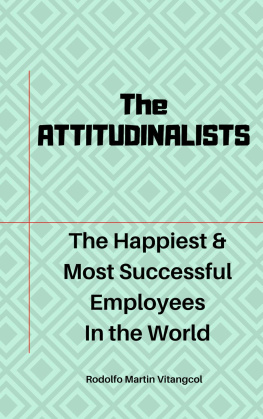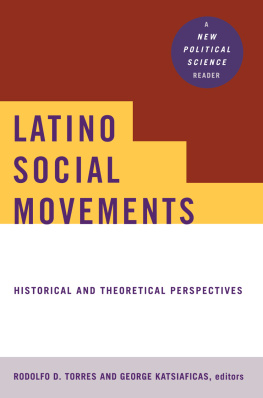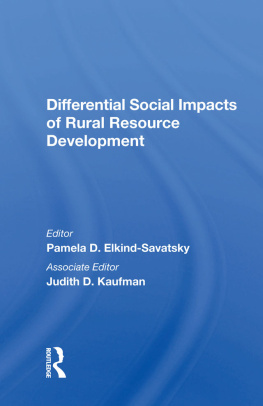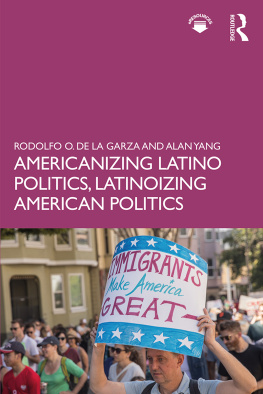Social Safeguards
Avoiding the Unintended
Impacts of Development
Rodolfo Tello
Copyright Amakella Publishing, 2015
All Rights Reserved. No parts of this book may be reproduced in any form or by any means without written permission from the publisher, except as allowed by the Copyright Act of 1976.
Disclaimer: The author and the publisher make no claims or representations about the authenticity or accuracy of the information contained in this book. All names are fictitious, and identifying references to specific projects have been avoided.
ISBN-13: 978-1-63387-013-0
Amakella Publishing. Arlington, Virginia.
www.amakella.com
A Few Yards Away
The old woman showed us an eviction notice she had received a few weeks before. She was to remove her belongings and disassemble the hut she had built on the side of the road over twenty years ago. She had only two more weeks left before the government started enforcing that notice. Her precarious place of residence was the only home she could afford because it was free. "What should I do?" she asked us. "We have nowhere to go." A tone of desperation was evident in her voice. Her grandchildren had stopped playing in the yard and were watching us apprehensively; they knew trouble was coming and were waiting to see if there was any ray of hope.
Helen, a member of the team visiting this rural area of Nicaragua, tried to divert the children's attention away from the problem. She asked them about their dolls and what games they were playing, if they attended school, how far it was, how they got there. Her efforts seemed to help the kids feel better; they welcomed the distraction. In the meantime, we continued talking to the old lady, trying to find out more about her situation, how this upcoming move would affect her and her family, and trying to figure out the available alternatives to prevent this family from becoming homeless.
The familys settling in next to an unpaved segment of a road with little traffic had not been an issue until now, when the construction of a wider paved road was imminent. Had the old woman originally settled a few yards farther away from the centerline of the road, she would probably not be in trouble today. Laws usually recognize possession rights of public lands occupied by people after a number of years. However, moving her house a few yards back is no longer an option because that land is now owned by someone else, and if she invaded private property, she would most likely end up being summarily expelled, mistreated, and worse.
Left on her own, the old woman would probably have to disassemble her hut and carry it to some other segment of the road where no construction was anticipated. She would hire someone to help her with the move if she only had the money to afford it, which she does not. She does not know where she could go, either. Her frail condition has prevented her from leaving the hut much lately. She would need time and resources to scout for a new place and repeat this informal settling-in process somewhere else, but she has neither.
She would also have to figure out a way to get access to water, finding a place near a stream, since building a well requires a lot of heavy work and she does not have that kind of strength anymore. She would also need to be close to a road so that her grandchildren can travel to a school within a reasonable distance. At her age, she also needs access to a health center. She needs the free painkillers it provides to deal with the aches associated with the aging process, and her grandchildren also get sick on a frequent basis.
She would have to say goodbye to her neighbors as well. Once she moves, she will not be able to come back for regular visits. All the little favors that sometimes made a big difference would stop, such as that time when her grandniece had a stomachache in the middle of the night and a neighbor gave them medicine to alleviate the pain, or when she borrowed money for urgent transportation to the nearby town when she did not have any, or when their friends provided her with information that helped her daughter get a job in the city, or when she received encouraging advice about not giving in to despair in times of crisis, or when they got together for social events that reinforced their sense of belonging. All the benefits of that social network would be soon gone.
This move would also cost lots of money, more than she regularly spends to sustain herself and her family on a monthly basis. She thinks about it over and over but cannot see a viable option. In the meantime, the clock is ticking. She wants to get drunk and forget about it, but then she thinks about her grandchildren and that helps her keep sober. The visiting team has brought up the issue once again, but she still does not know what to do. She looks at us and asks again, "Is there anything you can do?"
We offer words of encouragement but cannot make any promises at that particular moment. As social practitioners representing an international organization funding the road improvement project, our findings and recommendations will first need to be discussed with the officials of the executing agency in charge of implementing the project, and we will need to agree on a set of actions to be performed within a sensible time frame to mitigate the negative impacts of the project, particularly those affecting vulnerable people. We anticipate that these discussions may not go easy, since the level of effort and cost of restoring the living conditions of the affected population to the acceptable standards used by international organizations could be significant. It starts by recognizing possession rights and the need to replace the affected infrastructure, offering housing solutions determined in a participatory way. The houses would need to have access to basic services, even in cases when the population did not previously have them. The affected people would need a path for legal ownership of the house, and a support mechanism to help them overcome the disruptions to their lifestyle and social networks created by the transition, in addition to logistic support. They should also be able to reproduce their means of sustenance. The goal is to avoid impoverishment by generating similar or better living conditions for the affected population.
Enabling these conditions has a significant cost, particularly when we multiply it by the total number of families affected by a project. While the situation of each family may be somewhat different, the overall principle is that each of the affected families should be subject to appropriate mitigation measures, commensurate to the type and magnitude of the affectation. However, decision-makers oftentimes show reluctance to approve investments in anything besides the core elements of a project, as part of a tendency to avoid addressing externalities. Fortunately, Helen has lots of experience dealing with high-level government officials on these issues. The field visit allows us to get a better sense of the social impacts of the project, and gather evidence about the existing conditions on the ground to make a strong case during our upcoming discussions.
One key factor behind these discussions is that the multilateral organization providing the funds for the road project has an involuntary resettlement policy in place. This policy has specific requirements and standards that have to be met by all borrowing parties in the public and private sectors. The social safeguard specialists, such as Helen and myself, must translate these directives into practice, which requires us to double-check the key impacts and risks of a project, and understand the overall magnitude of the affectations on people's lives. That knowledge helps determine the requirements that will have to be met by a given project, in addition to the standard measures that may have been included as part of its social management plans. Awareness of such impacts also helps us to assess how likely it is that the proposed mitigation measures will address the problems faced, and to point out areas that may need reinforcing.









